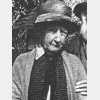| Profile | Posted by | Options | Post Date |

|
Dermot
|
Report
|
23 Jun 2021 19:50 |
|
A dictionary is not a book to be read from cover to cover. It is merely a record of words & phrases kept for posterity & to be used from time to time - otherwise those words are apt to disappear from memory.
|

|
Tawny
|
Report
|
22 Jun 2021 23:09 |
|
Reeking-Very drunk
Mr Owl is reeking tonight after watching England win. He told the guy who delivered out dinner it was a good night of football tonight l. England won and Scotland lost and at the moment we live in Scotland. Both Mr Owl and I are British with one Scottish and one English parent.
|

|
ArgyllGran
|
Report
|
15 Jun 2021 08:49 |
|
JoyLouise -
yes, it's a rhododendron.
I've no idea what its name is. It was already a mature bush when I moved here 15 years ago.
Re quean/quine - yes, always used affectionately, as you describe.
|

|
JoyLouise
|
Report
|
14 Jun 2021 21:55 |
|
Now I’ve looked it up but it seems to have an American origin and it means hussy/impudent girl and it was never used in that context in Liverpool. It was always used lovingly, as in ‘What’s wrong queen?’ when we were being comforted for instance. It’s beaten me now. :-S
I’ll take a look in Mum’s old Funk & Wagnall.
It says Quean:
1. A low woman, and
2. In Scotland, a young or unmarried woman, a girl. (My 2nd great gran on that side was Scottish, by the way.)
Old English, cwene, a prostitute.
I’m guessing we all came under the ‘2’ explanation as we were called that as children.
You picked that right Argyll - and there was I, thinking it was a Liverpool word because I’d never come across it anywhere else.
On another tack - is that a rhododendron, Argyll? I have a few in my garden but none is that lovely colour.
|

|
JoyLouise
|
Report
|
14 Jun 2021 21:47 |
|
I think you’re right, Argyll, but I always used the spelling queen. All of my Liverpool relies used it.
The word seems to me to have an Irish element in the spelling you used and that would ring true as there are a lot of Irish in Liverpool. I’ve never heard it used in our area of the North East (Durham) but I can imagine that it could have come from Ireland with Londonderry’s miners and fell out of use eventually.
You’ve beaten me with Northumberland and Lowland Scotland but I know that there were migrations from Ireland to the very south west of Scotland - only not as many as to Liverpool and the Durham coalfields who likely spread their wings to Northumberland.
What do you think? I haven’t looked it up but it seems like an Irish word to me. I may be a million miles out though!
|

|
ArgyllGran
|
Report
|
14 Jun 2021 21:30 |
|
Is that the same as the word quean (pronounced "quine") meaning a young girl?
Used in Lowland Scotland and northern England, though less often nowadays.
I first heard it in Northumberland in the early 1960s
|

|
JoyLouise
|
Report
|
14 Jun 2021 17:47 |
|
By the way, Argyll, my Gran’s high tea, as she called it, was sandwiches, sometimes a little salad with them followed by cakes and biscuits. Nothing cooked at all.
Here’s a word from Liverpool, now out of usage in the form it was used - queen. It’s such a shame it was hijacked, so to speak.
|

|
JoyLouise
|
Report
|
14 Jun 2021 17:40 |
|
Ha, names, no posher than any other Scouser, I’m afraid - and who knows a posh Scouser? ;-) :-D
It’s just that our family’s day was geared around work times and we all sat down together.
Interesting to note that you, a southerner, ate at the same time and had pretty much the same food after school as my Durham friends so it may have been that most schoolchildren had the same routine and we were fishes out of water so to speak.
That was interesting to learn that high tea still exists in Scotland. I wonder if it still exists anywhere else?
|

|
nameslessone
|
Report
|
14 Jun 2021 17:08 |
|
JL must have been posh. I,ve asked OH who said it was dinner around midday.
Snap to me is a packed snack/midday meal (being careful there). Scuffer is definitely a copper.
As kids we devoured bread and cake when we got home and weren’t allowed to join the grown ups ‘supper’ , had around 7.30 until a bit older.
Names - a born and bred southerner.
|

|
ArgyllGran
|
Report
|
14 Jun 2021 16:56 |
|
"Tea" as the name for the evening meal is a Scottish and northern English thing, I think.
"Dinner" is southern English, and implies a different (posher) kind of evening meal.
Even now that probably most people have their main meal in the evening, in Scotland it's still called "tea" if you have it at home.
If you go out for an evening meal in a restaurant or hotel, which is usually later and posher, it's "dinner".
When the main meal was in the middle of the day, it was always "dinner". Now it's often "lunch" because it's usually a lighter meal.
"High tea" still exists in Scotland, where some restaurants offer it. It suits young families better than a later evening "dinner".
Traditionally high tea was a cooked course, followed by bread/scones/cake with a pot of tea. Nowadays the bakery is sometimes replaced by a dessert.
|

|
JoyLouise
|
Report
|
14 Jun 2021 16:19 |
|
I've never heard of Baggins in Durham but in Yorkshire I think it is tea (as in a meal) so a little akin to your description GF.
In the North West dinner was always in the evening in our family. When we moved away but visited for a few days my Gran used to dish out 'high tea' around 3.30 and it was quite substantial. We ate our main meal in the evening when Grandad and Auntie arrived home from work so that was always dinner to us. I wonder if anyone still has 'high tea'?
The mid-day meal in parts (but not all) of the North East was originally called 'dinner' but it all changed many years ago when schools stopped providing the old-style school dinners and children began to take packed lunches or choose something themselves from the school canteen. Long gone are the days when every child was served the same school lunch - or dinner as it was known then and it's years since I've heard it described as dinner.
I am not sure that my school-friends would ever have eaten dinner in the evening around 70 years ago because I learned, to my surprise, that they had 'tea' at around 4 pm when they got home from school and never ate with their parents who ate a more substantial 'dinner'-type of meal in the evening. I always found that strange because my family all sat down to dinner together, usually around 6-6.30 and we all sat around the table and chatted while we ate. I brought our children up to do the same.
OH, had to get used to it because chatting over dinner was something his Dad in particular frowned upon - he must have thought I was uncouth but he never mentioned it!
Another word - snap. I'd never heard of 'snap' until I moved overseas, and heard it used in our nearby creche/nursery. I discovered that it was a Midlands word for a coffee or tea break. Correct me if I am wrong but that is what I was told when I enquired about the word because I was curious.
It's strange how words and their usage creep in and out of fashion. I was chatting with a northern author a few years ago and he was writing about dialects and various words - for policemen, as it happens. He mentioned Liverpool and I was a bit taken aback to hear that no one had told him of the word 'scuffer' to describe a policeman, but then I am getting on a bit and it may have fallen out of use.
I love the fact that there are some weird and wonderful words around.
|

|
grannyfranny
|
Report
|
13 Jun 2021 22:06 |
|
Baggins is lunch, but not the midday meal as we know it, baggins, or lunch, is what we might now know as elevenses or tea break in the farming community where I grew up.
The midday meal in the North is dinner, a cooked meal. Then you could have baggins in the afternoon too. The next meal is tea.
|

|
maggiewinchester
|
Report
|
13 Jun 2021 21:11 |
|
It used to be 5pm for me :-D
|

|
Dermot
|
Report
|
13 Jun 2021 21:08 |
|
Betwixt & Between.
|

|
grannyfranny
|
Report
|
13 Jun 2021 20:47 |
|
My Scottish friend still uses chum, meaning to escort, say to the shops. And shan, for something bad. And messages, for shopping.
Here in the north of England we say mard, or mardy, for someone sulking or whining.
Friend calls the local antisocial people scrotes, I believe it's a shortened version of another word..........
I try to use the local language when I can, even though it is slightly different from the language local to where I lived further north.
Does anyone know when baggin time is?
|

|
ArgyllGran
|
Report
|
13 Jun 2021 15:47 |
|
Reeking also means smoky -- as in "reeking lum" - smoking chimney.
Edinburgh was famously affectionately known as Auld Reekie - partly because of all the smoke from chimneys, and partly because of the smell from lack of sanitation, in the 17th (and earlier) , 18th and early 19th centuries.
It was still pretty smoky in the first half of the 20th century. I remember the blackened buildings , now all cleaned up.
|

|
Dermot
|
Report
|
13 Jun 2021 13:27 |
|
There are some 800 languages spoken within the 10-mile radius of New York City, which is more than 10 percent of the world’s estimated 7,099 languages.
|

|
maggiewinchester
|
Report
|
13 Jun 2021 12:45 |
|
Tawny - your previous post - 'scrote' - I love using that word as much as possible :-D :-D :-D
|

|
Tawny
|
Report
|
13 Jun 2021 12:04 |
|
Very good guesses Maggie.
Chum- Normally used when girls don’t want to go somewhere themselves like the toilets or the nurses office at school. Effectively asking a friend to come with.
Shan-Depends on the context either a shan (bad) day at work. Or bullying someone who can’t stand up for themselves/making fun of someone who thinks you’re a friend would be described as shan (cruel/mean)
Radge-Someone who insists on behaving in an embarrassing manner.
It really is take my hand off your face and yes it refers to giving someone a slap usually a child.
|

|
maggiewinchester
|
Report
|
13 Jun 2021 11:45 |
|
Tawny - that's not fair - those are Scottish dialect/slang! ;-)
As a 'sooth-moother' (okay I've lived in Scotland), here are my guesses:
Collybucky - pick -a- back/piggy back
Chum - pal?
Shan -no idea
Rank - disgusting
Skelpit Lug - Skelpit - slap, Lug - ear
Haud yer wheesht - be quiet
Reeking - smelly
Radge - angry?
Skelped - slapped
Take my hand off your face - should that be 'take my hand to your face' - ie slap you.
|

